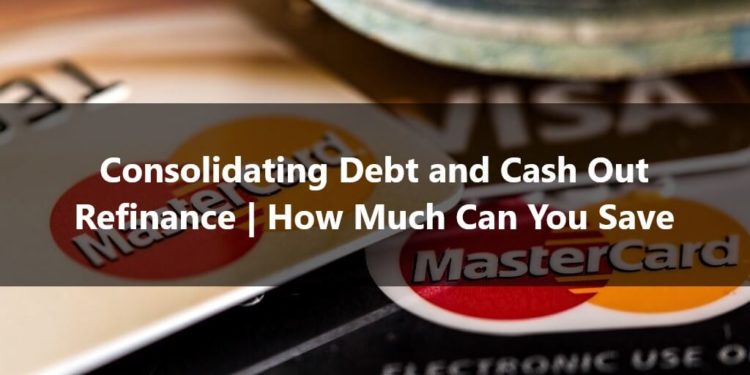Consolidating Debt and Cash Out Refinance | How Much Can You Save
Are you looking for relief when it comes to credit card debt, second mortgages with higher interest rates, auto loans, or student loans? It is hard to catch up on debt for many American households. Consolidating debt by refinancing and using the equity in your mortgage can have tremendous savings.
U.S. households may carry a significantly higher interest rate on their credit cards than on their mortgage. In some cases, even cardholders end up paying a higher rate on higher balances.
Recent Case Scenario for Cash Out Refinance – Closed in 2018:
Old Mortgage Payment and Debts:
- Principal and interest payment of mortgage: $1151.98
- Minimum revolving debt payment: $911
- Debt balance on all credit cards: $27,427
New Mortgage Payment and Debts:
- New principal and interest mortgage payment: $1,161
- Cash out amount to pay off debts: $29,316.91
- Minimum revolving debt payment on cards after paid off: $0
- Debt balance on all credit cards after paid off: $0
Every consolidation loan is different, but consolidating debt allowed this borrower to save $911 a month on credit card payments. It may seem as if there is no relief when paying a portion of the credit card each month and the interest keeps building up making you feel like you will never catch up. You may save even more depending on the debt.
Using the Equity in Your Home to Save Money – Cash Out Mortgage
In most cases, borrowers will notice that mortgage rates are lower than auto loans, student loans, credit cards, and other debt obligations. Depending on the type of loan, the maximum loan-to-value will vary. Calculating your loan-to-value is not difficult and is calculated by:
Loan-to-value is calculated by dividing the current mortgage balance by the approximate value of the home.
- (Current Payoff Amount) / (Estimated Home Value) = loan-to-value.
- This can help you estimate how much equity there is and the maximum cash out loan-to-value.
Conventional Cash Out Mortgage
- Consolidate debt and cash refinances allow up to 80% loan-to value with no mortgage insurance for a primary residence.
- Cash out mortgage and consolidating debt on an investment property of up to 75% loan-to-value.
There are investment refinance programs that allow you to cash out at a higher loan-to-value with no personal debt-to-income qualifications. These programs take the debt-service ratio into consideration for investment properties.
FHA Cash Out Loan
- An FHA cash out refinance allows up to 85% loan-to-value with no pricing adjustments on the interest rates for cashing out.
- Conventional loans often have pricing adjustment on cash out refinance.
VA Cash Out Refinance
- The maximum loan-to-value on a debt consolidation and cash out mortgage is 100%.
Benefits of Consolidating Debt and a Cash Out Refinance
- Defer up to two mortgage payments.
- Possibility of lowering the overall monthly debt payments.
- If the loan is FHA, possible FHA insurance HUD refund and lower monthly insurance.
- May be able to have one low monthly payment with no high balances with many different accounts.
- May get a refund of current escrow balance.
Most people have seen values in their homes go up. Borrower can use the debt consolidation and cash out refinance to eliminate mortgage insurance forever or knockout stressful debt obligations.




